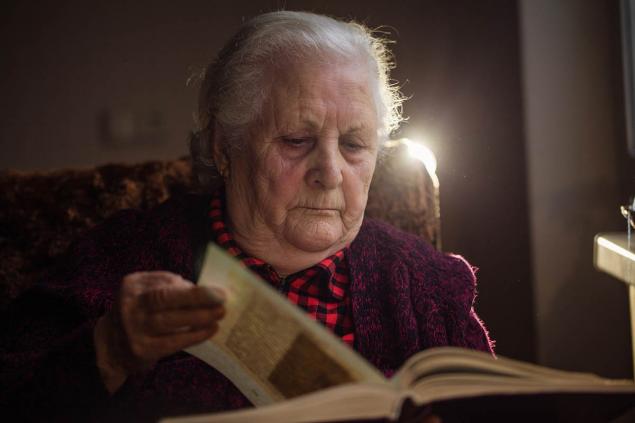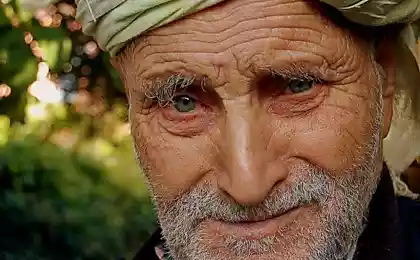198
Ancient Japanese woman tells how to live a century without fullness and aging
A huge number of elderly people in the CIS countries are not living well. A small pension is not always enough to make ends meet. Unfortunately, in such conditions, thoughts about health and long years of life fade into the background. But really for pensioners. Longevity is just a dreamWhat is impossible to accomplish?

Today, the editors want to share with you the experience of a woman who turned 118 this year. We believe that human power is unlimited. And Kane Tanaka, the oldest Japanese woman on earth, proves it. I hope she inspires you to your own accomplishments!
In Japan, longevity has long been a common phenomenon. In the Land of the Rising Sun lives more than 30 thousand people over 100 years. Some would say it's genetics. In fact, it all depends on your lifestyle.
View this post on Instagram
A post shared by Tako Magazine (@tako.magazine)
Kane Tanaka is a living example of how much we influence our lives. When the Japanese woman was 103 years old, doctors gave her a serious diagnosis, with which not all young people cope. But the woman defeated the disease, despite all the fears of doctors and loved ones.
View this post on Instagram
A post shared by News and News (@realnewsandnews)
The interesting thing is that a Japanese woman spends her whole life following the basic rules that we all know. But not everyone is ready to believe in simple truths. It's not worth it, because they really work. We'll talk about that later.
Every day a Japanese woman begins at 6 a.m. When she wakes up, she immediately gets out of bed, instead of lying in it for another hour. It seems that age already allows, doesn’t it? As soon as the sun appears outside the window, Kane goes outside to get some fresh air. The diet of a woman includes whole food: grains, soy and seafood, as well as vegetables and fruits.

This is your first reason to think. In our realities, people live on an irregular schedule, eat whatever they want (hello, late dinner before bed) and sleep poorly. But these are banal foundations that only the lazy have not heard of.
If you know that you have problems with these aspects, start solving them as soon as possible. A little time will pass and you will feel a surge of strength and energy.
Longevity – a burden on the body and brain, Kane Tanaka is convinced that a person needs to train both the body and the brain throughout his life. Mental activity should accompany us every day, no matter how old we are.

Let it be solving some logical problems or reading a book. For example, some old people like to play chess. That's great! The Japanese woman loves to write poetry, once she was engaged in calligraphy and mathematical calculations. All this develops memory and keeps the mind healthy.
In addition, aging is not a reason to give up sports. On the contrary, physical activity is extremely important. This does not mean that you have to go to the gym and carry iron. You can sign up for a dance (e.g. Tao Porchon Lynch danced until she was 101!), walk a lot, or garden. It is a great hobby for the body and the soul.
When a Japanese woman is asked what the secret of her longevity is, she talks about her family and hope. Kane does not lose contact with close relatives even during a pandemic. They love and support their grandmother.

The longevity focuses on the fact that How important it is to help each other. Even if you don't know a person, you can't turn your back if he's in trouble. It is also vital to take time to communicate with your relatives. For pensioners, this is a painful topic, because not always adult grandchildren want to make contact.
In addition, Kane Tanaka never stops making plans for the future. Japan wants to live another 5 years, celebrating its 120th anniversary. Her enthusiasm and optimism can only be envied. The oldest Japanese woman on the planet has set 22 records and continues to prove that longevity can become a reality for any of us. You believe that?

If you want to dilute the daily routine with something interesting, we suggest solving a couple of mathematical problems. It would be great if you could share your thoughts on longevity with us. We'll see you in the comments!

Today, the editors want to share with you the experience of a woman who turned 118 this year. We believe that human power is unlimited. And Kane Tanaka, the oldest Japanese woman on earth, proves it. I hope she inspires you to your own accomplishments!
In Japan, longevity has long been a common phenomenon. In the Land of the Rising Sun lives more than 30 thousand people over 100 years. Some would say it's genetics. In fact, it all depends on your lifestyle.
View this post on Instagram
A post shared by Tako Magazine (@tako.magazine)
Kane Tanaka is a living example of how much we influence our lives. When the Japanese woman was 103 years old, doctors gave her a serious diagnosis, with which not all young people cope. But the woman defeated the disease, despite all the fears of doctors and loved ones.
View this post on Instagram
A post shared by News and News (@realnewsandnews)
The interesting thing is that a Japanese woman spends her whole life following the basic rules that we all know. But not everyone is ready to believe in simple truths. It's not worth it, because they really work. We'll talk about that later.
Every day a Japanese woman begins at 6 a.m. When she wakes up, she immediately gets out of bed, instead of lying in it for another hour. It seems that age already allows, doesn’t it? As soon as the sun appears outside the window, Kane goes outside to get some fresh air. The diet of a woman includes whole food: grains, soy and seafood, as well as vegetables and fruits.

This is your first reason to think. In our realities, people live on an irregular schedule, eat whatever they want (hello, late dinner before bed) and sleep poorly. But these are banal foundations that only the lazy have not heard of.
If you know that you have problems with these aspects, start solving them as soon as possible. A little time will pass and you will feel a surge of strength and energy.
Longevity – a burden on the body and brain, Kane Tanaka is convinced that a person needs to train both the body and the brain throughout his life. Mental activity should accompany us every day, no matter how old we are.

Let it be solving some logical problems or reading a book. For example, some old people like to play chess. That's great! The Japanese woman loves to write poetry, once she was engaged in calligraphy and mathematical calculations. All this develops memory and keeps the mind healthy.
In addition, aging is not a reason to give up sports. On the contrary, physical activity is extremely important. This does not mean that you have to go to the gym and carry iron. You can sign up for a dance (e.g. Tao Porchon Lynch danced until she was 101!), walk a lot, or garden. It is a great hobby for the body and the soul.
When a Japanese woman is asked what the secret of her longevity is, she talks about her family and hope. Kane does not lose contact with close relatives even during a pandemic. They love and support their grandmother.

The longevity focuses on the fact that How important it is to help each other. Even if you don't know a person, you can't turn your back if he's in trouble. It is also vital to take time to communicate with your relatives. For pensioners, this is a painful topic, because not always adult grandchildren want to make contact.
In addition, Kane Tanaka never stops making plans for the future. Japan wants to live another 5 years, celebrating its 120th anniversary. Her enthusiasm and optimism can only be envied. The oldest Japanese woman on the planet has set 22 records and continues to prove that longevity can become a reality for any of us. You believe that?

If you want to dilute the daily routine with something interesting, we suggest solving a couple of mathematical problems. It would be great if you could share your thoughts on longevity with us. We'll see you in the comments!
Why on the Soviet windows hung concrete visors
In the old days, the best piece was given to parents, which is behind this tradition.























